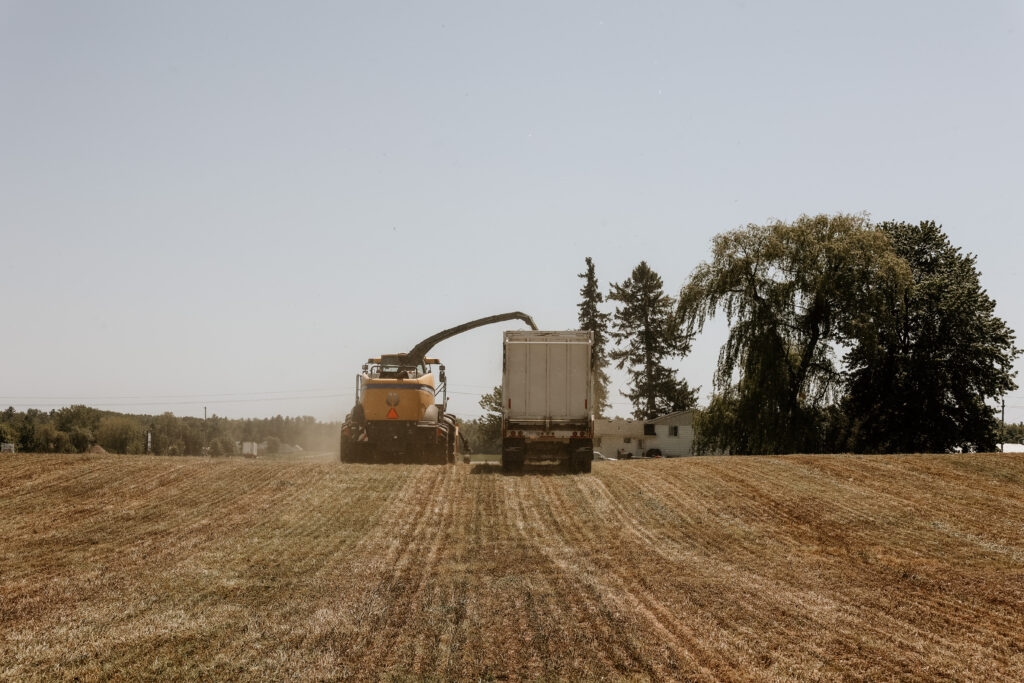
In an era marked by increasing environmental awareness and the urgent need for sustainable energy solutions, biogas has emerged as a promising avenue for reducing greenhouse gas emissions and promoting a more sustainable future.
Keep reading to delve into the environmental impact of biogas and explore how Walker Farms is pioneering sustainable energy practices through its innovative biogas production.
Understanding Biogas:
Biogas is a renewable energy source produced through the anaerobic digestion of organic materials such as agricultural waste, food scraps, and animal manure. During the anaerobic digestion process, microorganisms break down organic matter in the absence of oxygen, resulting in the production of biogas, which is primarily composed of methane (CH4) and carbon dioxide (CO2).
Environmental Benefits of Biogas:
- Greenhouse Gas Reduction: One of the most significant environmental benefits of biogas is its ability to reduce greenhouse gas emissions. By capturing methane emissions from organic waste and converting them into biogas, biogas facilities help mitigate the release of methane, a potent greenhouse gas with a global warming potential significantly higher than that of carbon dioxide.
- Waste Diversion: Biogas production provides an environmentally responsible solution for managing organic waste streams that would otherwise contribute to landfill methane emissions. By diverting organic waste from landfills and utilizing it as feedstock for biogas production, biogas facilities help reduce the environmental impact of waste disposal while generating renewable energy.
- Renewable Energy Generation: Biogas is a versatile renewable energy source that can be used for electricity generation, heat production, and transportation fuel, amongst others. When turned into a renewable energy source, biogas can replace fossil fuels and contribute to a more sustainable energy mix, reducing reliance on non-renewable resources (e.g. gas) and lowering carbon emissions.

Walker Farms: A Leader in Sustainable Energy
Located in the heart of Ontario’s agricultural landscape, Walker Farms demonstrates the transformative potential of biogas in promoting sustainable energy practices within the farming community. Through its state-of-the-art anaerobic digestion facility, Walker Farms uses the power of biogas to convert organic waste from its operations into renewable energy.
Key Initiatives:
- Anaerobic Digestion: At the core of Walker Farms’ sustainable energy strategy is its anaerobic digestion facility, which processes agricultural waste, including crop residues and livestock manure, to produce biogas. By capturing methane emissions from organic waste and converting them into biogas, Walker Farms reduces its environmental footprint while generating renewable energy to power its operations.
- Renewable Energy Generation: The biogas produced at Walker Farms is utilized to generate RNG (renewable natural gas), which powers farm equipment, facilities, and residential buildings on the farm and in the local area. By integrating renewable energy generation into its operations, Walker Farms reduces its reliance on fossil fuels and contributes to a more sustainable energy future.
- Nutrient Management: In addition to producing renewable energy, Walker Farms’ anaerobic digestion facility plays a crucial role in nutrient management and soil health. The by-products of anaerobic digestion, known as digestate, are rich in nutrients and organic matter, making them valuable fertilizers for enhancing soil fertility and crop productivity.
As the global community struggles with the challenges of climate change and environmental degradation, the need for sustainable energy solutions has never been more pressing. Biogas represents a promising avenue for reducing greenhouse gas emissions, diverting organic waste from landfills, and promoting renewable energy-generative sources.
Sources and more information about Biogas:
https://www.tandfonline.com/doi/pdf/10.1080/10934529.2018.1459076?needAccess=true
https://www.energysage.com/about-clean-energy/biomass/environmental-impacts-biomass
Learn more about Walker Farms and the A2 milk difference:
DLS Newsletter – Walker Farms: https://dairylane.ca/barn-talk/enewsletter/walkerfarms/
The Benefits of A2 Protein Milk: What Makes It Different?
2023 Canadian Biogas Industry: https://biogasassociation.ca/cbia/2023American Biogas Council: https://americanbiogascouncil.org/ab-energy-announces-its-first-bioch4nge-membrane-biogas-to-rng-upgrading-system-in-north-america/
